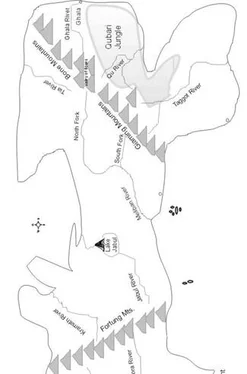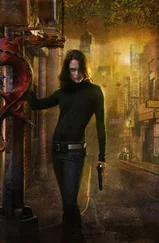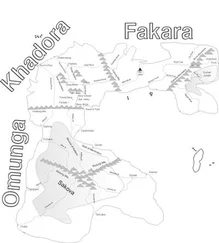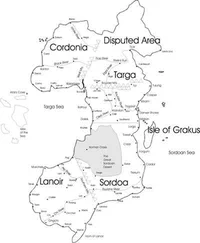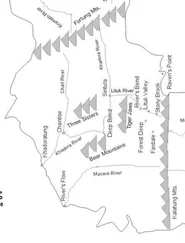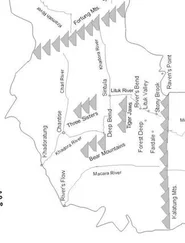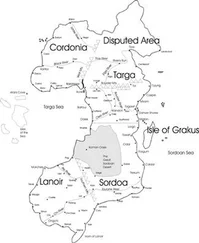Richard Tuttle - Web of Deceit
Здесь есть возможность читать онлайн «Richard Tuttle - Web of Deceit» весь текст электронной книги совершенно бесплатно (целиком полную версию без сокращений). В некоторых случаях можно слушать аудио, скачать через торрент в формате fb2 и присутствует краткое содержание. Жанр: Фэнтези, на английском языке. Описание произведения, (предисловие) а так же отзывы посетителей доступны на портале библиотеки ЛибКат.
- Название:Web of Deceit
- Автор:
- Жанр:
- Год:неизвестен
- ISBN:нет данных
- Рейтинг книги:5 / 5. Голосов: 1
-
Избранное:Добавить в избранное
- Отзывы:
-
Ваша оценка:
- 100
- 1
- 2
- 3
- 4
- 5
Web of Deceit: краткое содержание, описание и аннотация
Предлагаем к чтению аннотацию, описание, краткое содержание или предисловие (зависит от того, что написал сам автор книги «Web of Deceit»). Если вы не нашли необходимую информацию о книге — напишите в комментариях, мы постараемся отыскать её.
Web of Deceit — читать онлайн бесплатно полную книгу (весь текст) целиком
Ниже представлен текст книги, разбитый по страницам. Система сохранения места последней прочитанной страницы, позволяет с удобством читать онлайн бесплатно книгу «Web of Deceit», без необходимости каждый раз заново искать на чём Вы остановились. Поставьте закладку, и сможете в любой момент перейти на страницу, на которой закончили чтение.
Интервал:
Закладка:

Richard S. Tuttle
Web of Deceit
Prologue
Khador walked to the edge of the cliff and gazed down upon the scraggly line of soldiers returning from the jungle. Even from his perch high above the headwaters of the Qu River, Khador could sense the humiliation the defeated army carried with it. His eyes focused on the small group at the head of the procession as he tried to find his brothers among the survivors. The noise of the reinforcements Khador had brought with him temporarily distracted him and he had to refocus on the small figures below him. Unable to detect his brothers from such a great height, Khador turned and strode towards his army to get them camped for the night. He did not want the tens of thousands of fresh troops he led to be infected by the mental despair of the returning army, so he ordered them to make camp in the pass while he descended to meet his brothers’ armies.
It took several hours for Khador and his guards to reach the returning soldiers and when he saw the column approaching he halted. The men of his brothers’ armies marched with their heads down and appeared weary and exhausted. Khador again scanned the column and spied his brother Omung. Just behind Omung was the body of a soldier being carried by others. Khador felt his heart hesitate, as he quickly looked for his other brother, Fakar. Knowing that only the body of a high-ranking officer would be carried out of battle, Khador fought back his tears as his search for Fakar proved fruitless.
Khador stiffened himself as Omung raised his head and noticed the party waiting for him. Omung turned and shouted for his men to make camp as he shuffled forward to meet Khador. No words were exchanged when the brothers embraced each other in ritual greeting, but as soon as the embrace was broken, Omung tore off his helmet and flung it against the wall of the pass.
“Where is Fakar?” queried Khadora.
Omung turned and signaled to the men carrying the body and they began to approach the brothers. Khadora felt a shiver course through his body as he realized his suspicions were correct.
“You were just supposed to probe their defenses while I gathered the rest of the force,” growled Khador.
“That is all we were doing,” spat Omung. “We saw no defenses at all. Then it happened. They were everywhere at once. We never heard them. Never saw them.”
Omung was visibly shaking and Khador turned as the bearers lowered Fakar’s body to the ground. He stooped next to his dead brother and unwrapped the blanket covering him. Khador gasped as he viewed the body. Fakar’s uniform was shredded and his body was covered with tears and open wounds. The skin had a pale bluish tint, but what made Khador gasp was Fakar’s face. The face was a mask of terror, eyes wider than should be possible, nostrils dilated to the maximum, and a mouth wide open as if in the middle of a scream for life. He quickly covered the body and rose to find Omung staring at him.
“What did this?” questioned Khador.
“I don’t know,” conceded Omung, his head hung low. “They are not human, these things we fight. They look human, but they are not. The ones who look human attacked us with the rest of the animals. Everything that lives in the jungle turned on us at the same time. One of my men found Fakar already dead. He grabbed the body and ran like the rest of us.”
“Well then we shall wipe out the animals with the rest,” scowled Khador. “Tomorrow we will destroy every living thing in that jungle.”
“No!” Omung nearly shouted, raising his head until his eyes locked with Khador’s.
The fear was evident on Omung’s face and Khador spat on the ground in disgust. “You know the directive,” stated Khador. “All indigenous humans must be killed. This must be done for us to survive.”
“Look,” pleaded Omung, “whatever the reason for this directive, we must not go into that jungle again. It has claimed Father and now it has Fakar. This was to be Fakar’s land, but he will not receive it now, no matter what we do here.”
“But our lands are all on the same landmass,” reasoned Khador as he tried to remember the purpose for the directive and failed. “There must be no natives alive to intermingle with.”
“Trust me brother,” argued Omung, “those creatures will never be attractive to us. No sane man would take one of those natives to be his wife. They are more animal than human. We each have our own lands to care for. This was to be Fakar’s and he will never possess it. If we lose all of our men to these creatures, then what purpose have we served? Our peoples are already decimated. We must rebuild our nations and we cannot do that by sacrificing more of our men.”
Khador stared at the remnants of the army. He nodded slowly as he surveyed the men. Despair filled the encampment. The spirit of the army was forever broken.
“Very well,” conceded Khador, “we turn around in the morning and head back to our own lands. The men of Fakar may join us or stay and live off the land east of the Fortung Mountains. Those who decide to stay will never be permitted to cross the Fortung Mountains.”
“What of the mages and their destruction of the land?” asked Omung. “Some land must be left tillable for the army that stays behind.”
“I will send runners to collect the mages,” agreed Khador. “It would be wasteful to leave them here for the years it would require to finish the job. We will have need of them in our own lands.”
Khador turned and reviewed the encampment again and gazed at the distant jungle below them. Whatever their need to conquer this strange land, he thought, he hoped it was achieved by his decision to forsake this jungle and return to their new lands.
“Tomorrow we return to Khadora and Omunga,” he declared to nobody in particular.
Chapter 1
The Village
Rejji gazed up at the sun’s first glint, as the top of the huge orb rose just high enough in the sky to crest the tall cliff surrounding him. He knew it was time to get his belongings together and head back to the village. He was excited as he surveyed the small pile of petrified shark’s teeth he had gathered this morning. Most people would not even stoop to pick up one of these fossils, which by some strange quirk of nature were only found on this small sliver of beach surrounded by tall cliffs. Rejji, however, had discovered the delight the traveling merchant had shown when he first saw them. Since that day several years ago, Rejji had spent every morning on the little sliver of beach gathering every tooth he could find. Brontos, the traveling merchant, would buy every one of them from Rejji and the boy used the money to buy items the villagers needed. The merchant only came twice a year and tonight he would be arriving.
The village Rejji lived in with his grandfather was very small and barely had enough to survive, so the teeth Rejji gathered was the only commodity the villagers had to bargain with. Still, Rejji never considered the fossils as his property, but something that was shared by the entire village, so the villagers all had a say in how the money was spent. Mostly the villagers voted to try different types of seeds in a search for some crop that would grow in the poor Fakaran soil, but nothing much ever grew. Mostly the village subsisted on a small flock of scrawny clova, a few chickens and the small fish that could be caught by string from the top of the cliffs. Even with such meager offerings, the bandits came once a year and demanded a tenth of what the village had. Soon the village would have nothing at all.
Читать дальшеИнтервал:
Закладка:
Похожие книги на «Web of Deceit»
Представляем Вашему вниманию похожие книги на «Web of Deceit» списком для выбора. Мы отобрали схожую по названию и смыслу литературу в надежде предоставить читателям больше вариантов отыскать новые, интересные, ещё непрочитанные произведения.
Обсуждение, отзывы о книге «Web of Deceit» и просто собственные мнения читателей. Оставьте ваши комментарии, напишите, что Вы думаете о произведении, его смысле или главных героях. Укажите что конкретно понравилось, а что нет, и почему Вы так считаете.
